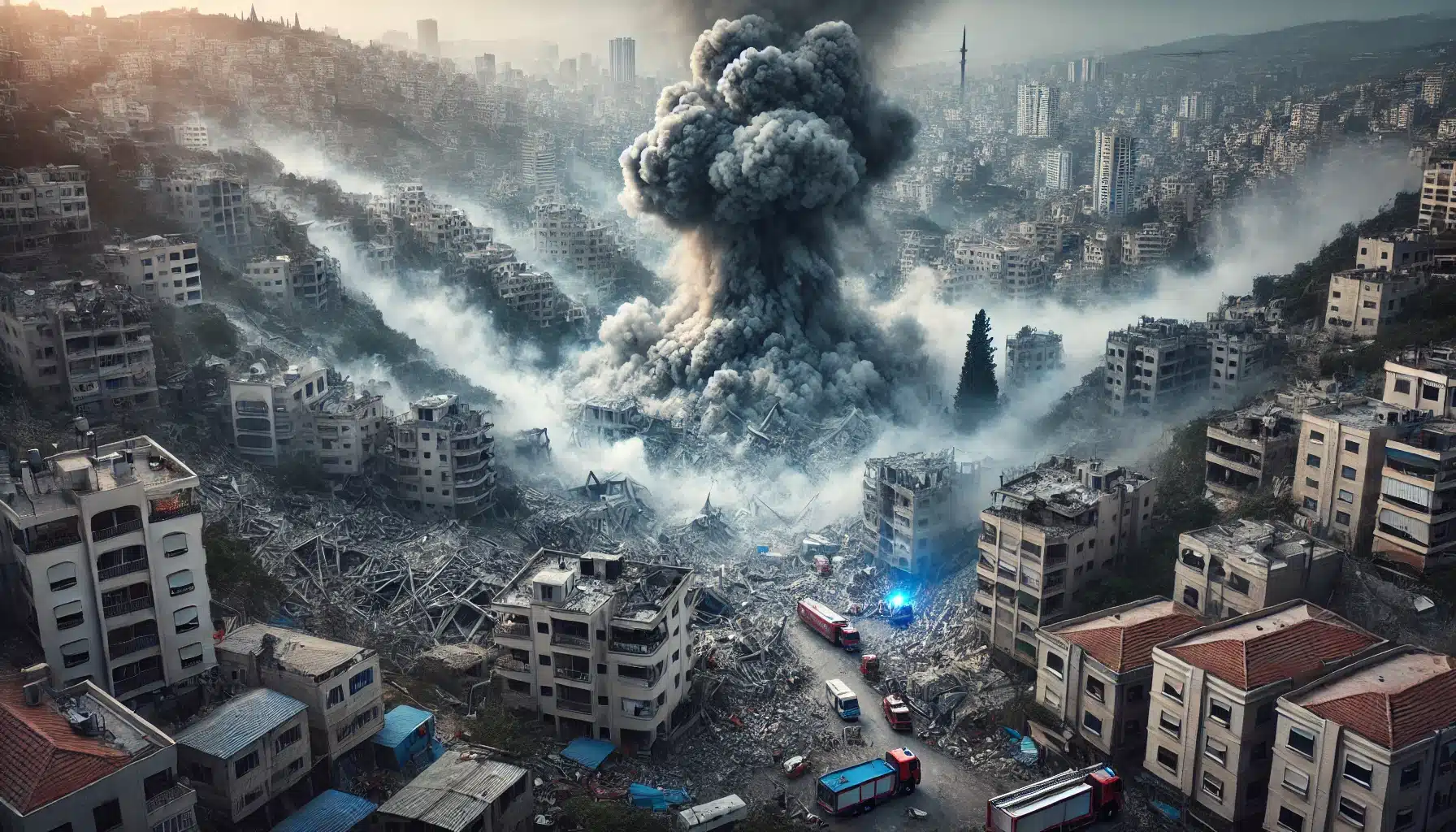The ongoing conflict between Israel and Lebanon has reached unprecedented levels, with the Lebanese Health Ministry confirming over 2,000 deaths due to Israeli strikes, including 127 children and 261 women. The Israeli military has conducted some of the heaviest airstrikes on Beirut, while escalatin

The ongoing Israeli-Lebanon conflict has seen a sharp escalation in violence, with airstrikes leaving thousands dead and tens of thousands displaced. On Friday, October 4, the Lebanese Ministry of Health confirmed that more than 2,000 people have been killed, including 127 children and 261 women, as Israel continues its bombardment of Beirut and surrounding regions. The conflict has drawn international attention, especially after Iranian Supreme Leader Ayatollah Ali Khamenei called for unity in the Muslim world to stand against its “enemies.”
Key Events in the Conflict
- Israeli airstrikes on Beirut were among the heaviest seen to date, with plumes of smoke rising from the densely populated southern suburbs and explosions shaking the city overnight.
- At least 18 Palestinians were reported killed in a jet fighter attack by Israel on the Tulkarem refugee camp in the West Bank, with the death toll expected to rise, according to the Palestinian Health Ministry.
- Hamas confirmed the death of Commander Zahi al-Aoufi, along with seven other fighters, in the attack on Tulkarem. Israel’s military said it carried out the strike in coordination with its internal security service, the Shin Bet.
Hezbollah’s Response and Israel’s Escalating Airstrikes
- In Lebanon, Hezbollah confirmed that one of its senior officials, Mohammad Rashid Sakafi, was killed in a precise airstrike by Israel. This marked the most violent Israeli attack on Beirut to date, with 11 consecutive raids targeting various locations, including the Masnaa border crossing with Syria.
- More than 300,000 people, mostly Syrians, have fled Lebanon to Syria in recent days, escaping the escalating airstrikes, according to the Lebanese government.
- The destruction was particularly intense in southern Lebanon, where Israel ordered the immediate evacuation of residents from 20 towns, signaling a potential ground offensive.
Iranian and International Reactions
- Iran’s Supreme Leader Ayatollah Ali Khamenei addressed a massive gathering in Tehran, calling for Muslim nations to unite against Israel and its allies. Iran had earlier launched its largest missile attack on Israel in years, which has further fueled tensions in the region.
- Germany condemned Israel’s airstrike on Tulkarem, stating that the high number of civilian casualties was “shocking.” The German Foreign Ministry emphasized that the Israeli army must protect civilians even in its fight against terror.
- UNRWA, the UN agency for Palestinian refugees, reported that three UN-run school shelters in Gaza were attacked by Israeli forces, leading to 21 Palestinian deaths.
Humanitarian Crisis Worsens
- The UNHCR reported that nearly 900 government shelters in Lebanon are now full, forcing many families displaced by the bombardments to sleep in the open as winter approaches. UNHCR’s Rula Amin warned of worsening conditions for those displaced.
- Israel’s military issued a statement on Friday, justifying the strikes on Lebanon as necessary to prevent Hezbollah from smuggling military equipment across the border, particularly through the Masnaa crossing.
Ongoing Conflict and Potential Ground Invasion
- Israeli Prime Minister Benjamin Netanyahu vowed that Iran would face “severe consequences” for its missile attack, as the IDF continues its airstrikes across Lebanon and Gaza.
- Over 41,000 people have been killed in Gaza since the conflict reignited in October 2023, and at least 1,139 Israelis were killed in the Hamas-led attacks on October 7, with more than 200 people taken captive by Hamas fighters.
Source: Al Jazeera





